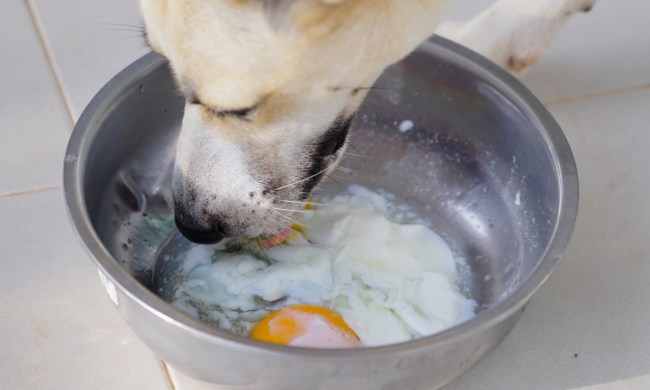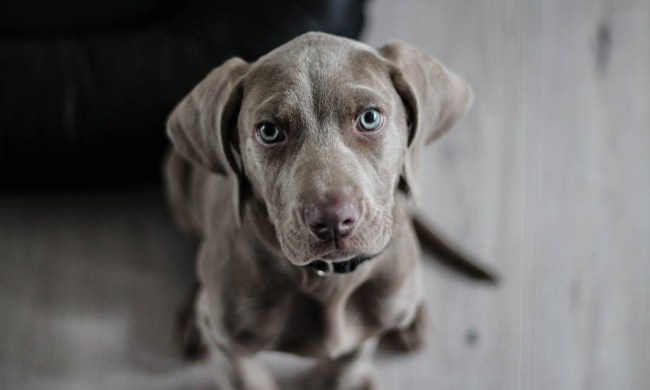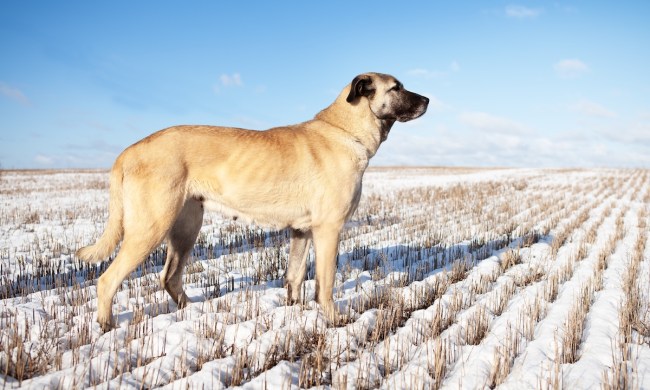Dogs are considered our best friends for a reason, and we adore pups of any age. That being said, we’re not ashamed to say that the oldest fur babies make the dearest companions. Our senior dog family members have been with us through all of life's ups and downs, and we've spent years bonding with them. As our fur babies get older, health issues can arise, including your old dog's back legs collapsing.
While watching your pup struggle to stand can be terrifying to experience, it's important to remain calm. Panicking will only upset your dog, and there may be a perfectly normal explanation for this collapse. We’ll elaborate on some of the most common reasons older dogs lose strength in their back legs and share a few ways you can help your dog cope. Here’s what you should know.
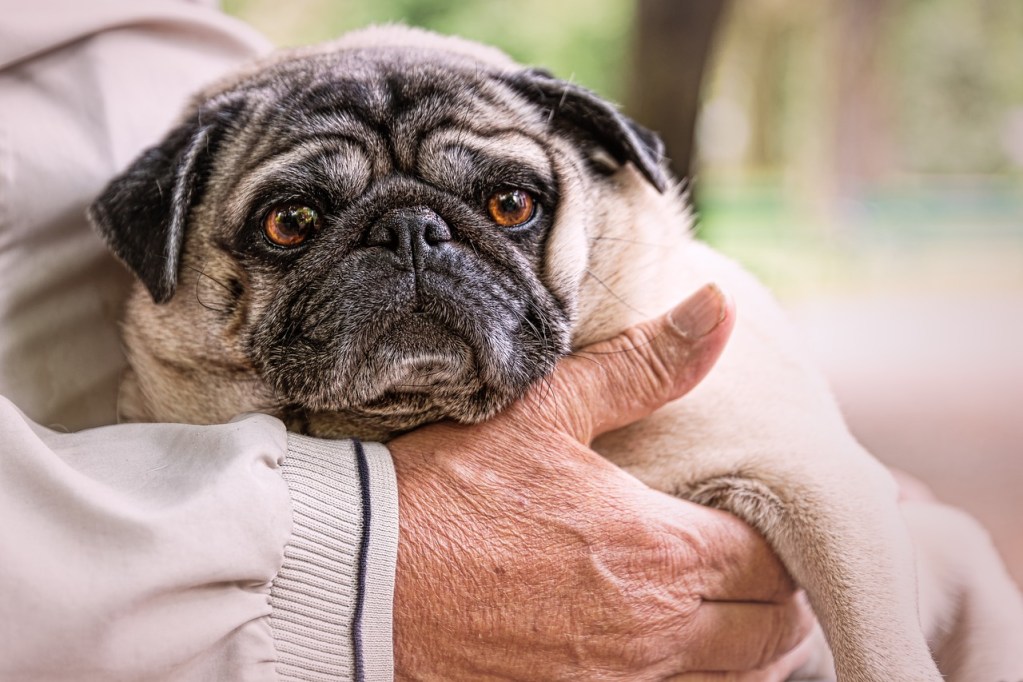
Why do older dog's back legs give out?
Just like humans, dogs tend to slow down as they age. From gray hair to age-related health issues, dogs and humans have much in common. As frightening as it is to watch your old dog’s legs collapse, it’s relatively common in older dogs, especially large breeds. Here are some of the most typical reasons it may be happening to your fur baby:
Osteoarthritis
Healthy joints have several layers of cartilage for protection and lubrication. Cartilage erodes over time, causing pain and inflammation. Osteoarthritis may be due to age-related wear and tear, but it could also stem from a prior injury or a hereditary condition, such as hip dysplasia.
Degenerative myelopathy (DM)
While degenerative myelopathy — the canine equivalent of ALS, or Lou Gehrig’s Disease — isn’t as common a cause of hind leg collapse as arthritis, it’s worth noting that DM may impact corgis, German shepherds, and golden retrievers. Fortunately, this neuromuscular disease is considered painless, so despite his mobility issues, your pup will continue to enjoy the same quality of life as he did before his diagnosis.
Intervertebral disc disease (IVDD)
Unlike limping and degenerative myelopathy, which are characterized by a progression of symptoms, intervertebral disc disease often causes a sudden onset of weakness and collapse. While it’s more common in small breeds, IVDD can also happen in large breeds. IVDD causes discs to herniate or shift, applying pressure to the spinal cord. In some cases, it causes their back legs to collapse, but it can also cause paralysis. Surgery is usually required to correct the condition.
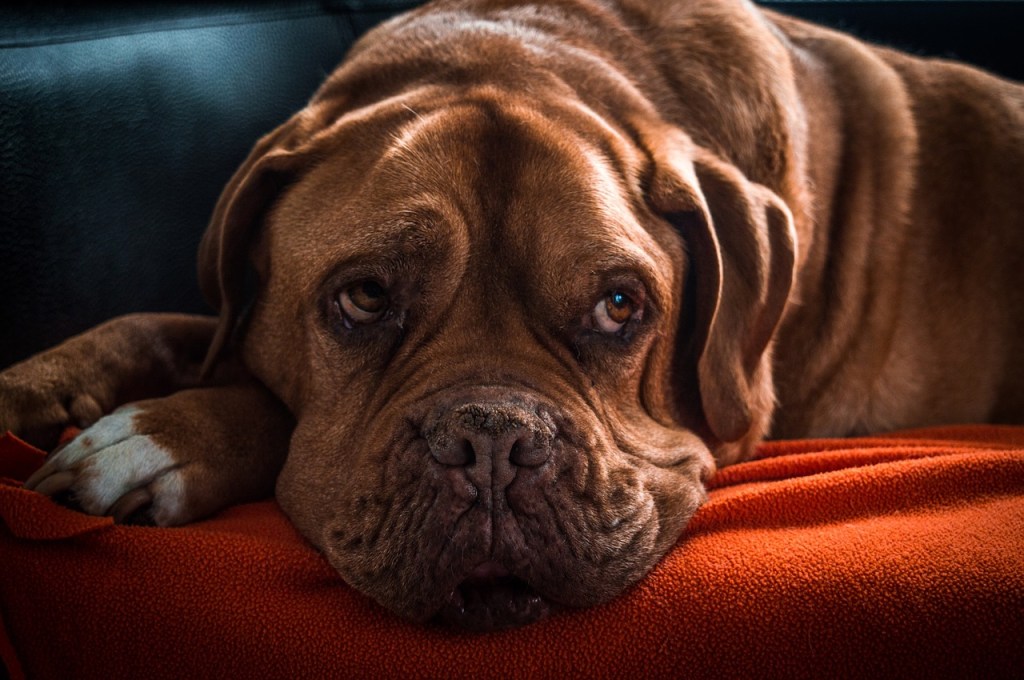
Symptoms to look out for
Other causes of hind leg collapse include hypothyroidism, Cushing’s disease, shock, injury, and diabetic neuropathy caused by diabetes mellitus. Early treatment usually leads to a more favorable result, whatever the source of your old dog’s hind leg collapse. Here are some symptoms to look out for:
- Difficulty standing
- Trembling in the legs
- Exercise intolerance
- Signs of pain, such as whimpering, limping, panting, loss of appetite, hiding, and behavioral changes.
If your dog shows any of these symptoms, we recommend taking him to the vet as soon as possible for a checkup.

How to strengthen an old dog’s hind legs
You should consult your vet before beginning an exercise program if your old dog’s back legs show weakness. Your vet may recommend physical therapy for your dog, depending on the cause of his issues. However, we have a few suggestions if your veterinarian gives the green light to help strengthen your pup’s legs at home.
Step 1: Start off slowly.
If your fur baby is in pain, the last thing you want to do is exacerbate it with too much activity. Try gently stretching your pup’s hind legs to prevent muscle cramps and help rebuild strength and range of motion.
Step 2: Introduce low-impact activities.
Take short walks with your buddy, keeping the pace slow and relaxed, to help rebuild muscles.
Swimming is another low-impact activity that’s especially helpful for weak hind legs. Water supports your dog’s weight, allowing him to move more freely than he can on dry land.
Step 3: Feed age-appropriate food.
Excess weight can cause many health problems for any canine, but it’s even more important for an older dog to maintain his ideal weight. In addition to reducing excess pressure on joints and bones, maintaining a healthy weight lowers your dog’s risk of various health problems.
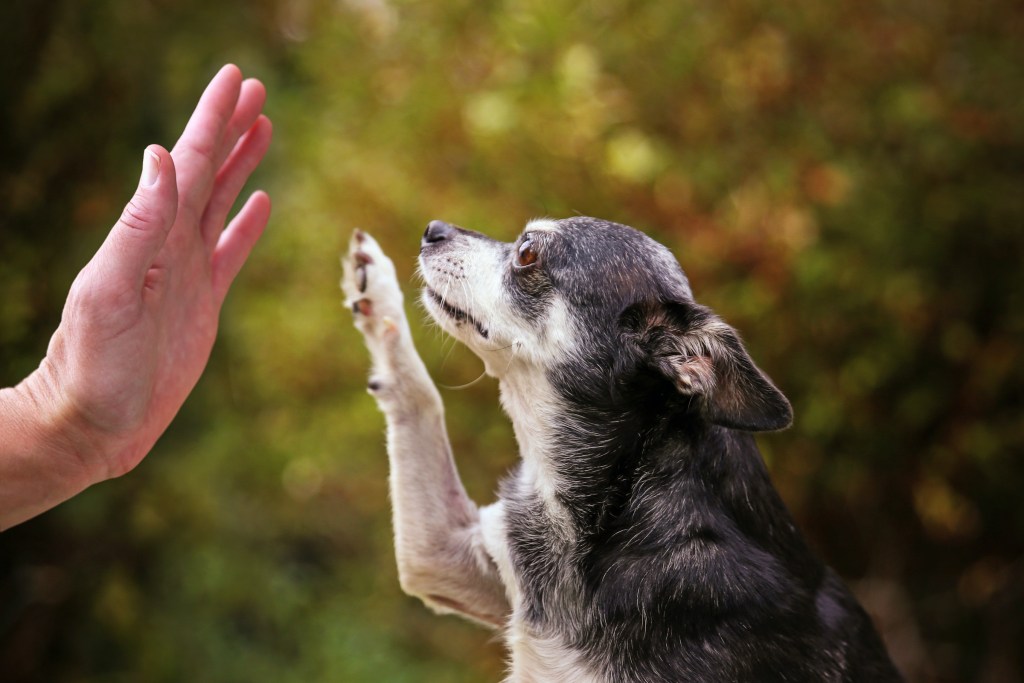
What do you do when an old dog's back legs give out?
When you do begin to notice the tell-tale decline, you should immediately reach for the phone and make a call to her doggy doctor. It could wind up being something really easy and fixable like a side effect from medication. However, if you determine that your dog's leg collapse stems from plain old age, there are some non-medical things you can do to improve her quality of life.
Try out a Help 'Em Up harness that will enable you to give your dog a little boost. Additionally, add some non-slip areas to the home to make it easier for your old lady to get around. These simple tweaks can make a big difference in her remaining years.
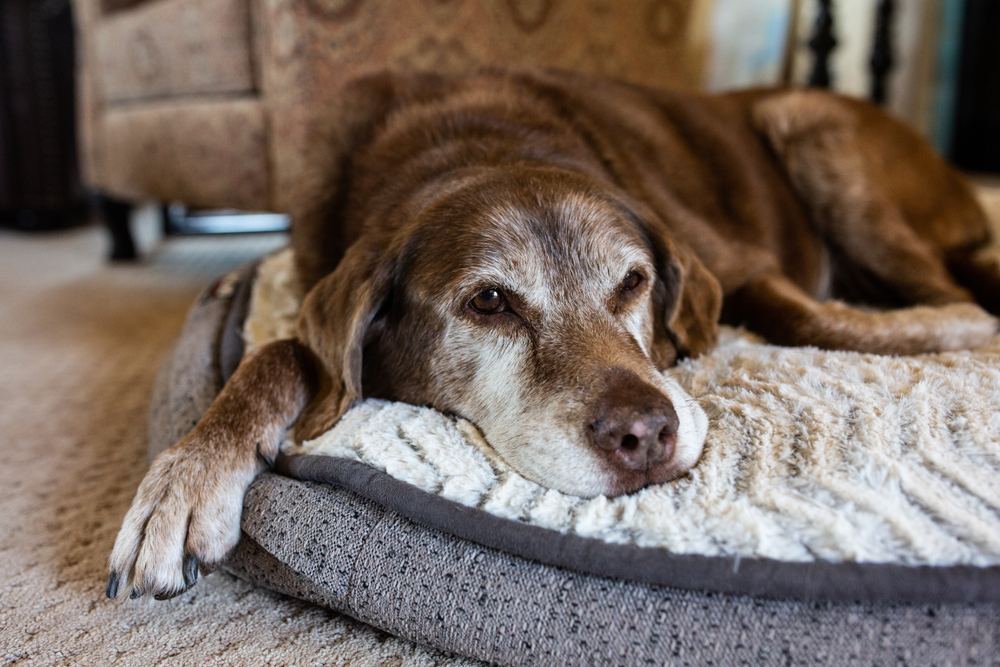
How can I help my old dog with weak back legs?
Try not to worry if a healthy, nutritionally balanced diet and regular (vet-approved) exercise aren’t enough to improve your dog’s condition as much as you’d hoped.
Discuss treatment options with your vet, who may recommend physical therapy, corrective surgery, orthopedic braces, or possibly a mobility aid like a wheelchair. Depending on the cause of your pup’s condition, your vet may also recommend certain supplements, such as glucosamine and chondroitin, or prescription medication to help alleviate his symptoms.
Seeing your older dog’s hind legs collapse can be heart-wrenching, but there’s no reason to panic. Take your pup to the vet to determine the cause of your dog’s weakness and follow their advice to provide the best possible chance at recovery. Aging is a part of life, but with a healthy diet, regular exercise, and the support of a devoted family, your dog can remain happy and young at heart.


